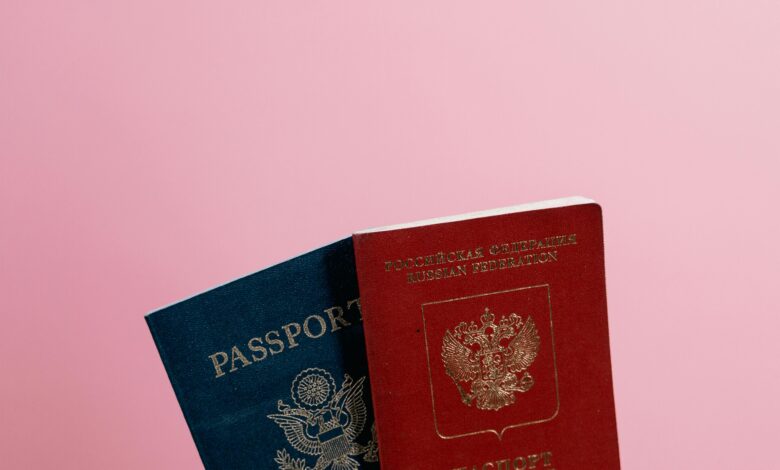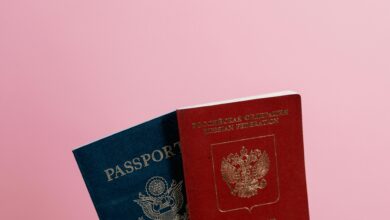How to Get the Best Coverage for Your Travel Insurance: A Comprehensive Guide

Travel insurance is an essential safeguard for any trip, whether you’re embarking on a weekend getaway or planning an extended international adventure. It protects you from unexpected events like medical emergencies, trip cancellations, lost luggage, and other unforeseen circumstances that could disrupt your plans. However, not all travel insurance policies are created equal. To ensure you get the best coverage tailored to your needs, it’s crucial to approach the process thoughtfully. In this guide, we’ll walk you through everything you need to know to secure the best travel insurance coverage.
Why Travel Insurance Matters
Before diving into how to find the best coverage, let’s first understand why travel insurance is so important:
- Medical Emergencies Abroad : Healthcare costs can be exorbitant in many countries, especially if you require emergency evacuation.
- Trip Cancellations or Interruptions : Unexpected events like illness, natural disasters, or family emergencies can force you to cancel or cut your trip short.
- Lost or Delayed Luggage : Airlines mishandle thousands of bags every day, leaving travelers without essentials.
- Travel Delays : Missed connections or flight cancellations can leave you stranded, requiring accommodation and meals.
- Adventure Activities : Many standard policies exclude coverage for high-risk activities like skiing, scuba diving, or bungee jumping.
With these risks in mind, having comprehensive travel insurance ensures peace of mind and financial protection.
Types of Travel Insurance Coverage
Understanding the different types of coverage available will help you choose the right policy for your needs:
1. Medical Coverage
- Covers emergency medical expenses, hospital stays, and sometimes dental emergencies.
- Includes emergency medical evacuation, which transports you to the nearest adequate medical facility.
2. Trip Cancellation/Interruption Insurance
- Reimburses non-refundable expenses if you must cancel or interrupt your trip due to covered reasons (e.g., illness, death in the family).
3. Baggage Loss/Delay Coverage
- Compensates for lost, stolen, or delayed luggage, including the cost of replacing essential items.
4. Travel Delay Insurance
- Provides reimbursement for additional expenses (like hotel stays and meals) caused by delays of a certain duration (usually 6+ hours).
5. Accidental Death and Dismemberment (AD&D)
- Offers a lump-sum payment in the event of accidental death or serious injury during travel.
6. Rental Car Insurance
- Covers damage or theft of a rental car, often as an alternative to the costly coverage offered by rental companies.
7. Adventure Sports Coverage
- Extends protection to high-risk activities typically excluded from standard policies.
Factors to Consider When Choosing Travel Insurance
To get the best coverage, consider the following factors:
1. Destination
- The location of your trip significantly impacts your insurance needs. For example:
- Countries with expensive healthcare systems (e.g., the US) require robust medical coverage.
- Remote destinations may necessitate emergency evacuation coverage.
2. Duration of Your Trip
- Short trips may only need basic coverage, while long-term travelers might benefit from annual multi-trip policies.
3. Pre-Existing Medical Conditions
- Some insurers exclude pre-existing conditions unless you purchase a waiver or upgrade your policy.
4. Activities You Plan to Do
- If you’re engaging in adventure sports or risky activities, ensure your policy explicitly covers them.
5. Cost of Your Trip
- High-value trips (e.g., cruises, luxury vacations) warrant higher coverage limits for trip cancellation and interruption.
6. Age of Travelers
- Older travelers may face higher premiums due to increased health risks.
Steps to Secure the Best Travel Insurance Coverage
Now that you understand the basics, here’s how to find the best travel insurance policy for your needs:
1. Assess Your Needs
Start by evaluating what type of coverage you need based on your destination, itinerary, and personal circumstances. Ask yourself:
- Will I be participating in adventurous activities?
- Do I have existing health conditions?
- What’s the total cost of my trip?
2. Compare Multiple Providers
Don’t settle for the first option you find. Compare quotes from reputable providers such as:
- Allianz Global Assistance
- World Nomads
- Travelex Insurance Services
- Seven Corners
- IMG (International Medical Group)
Use comparison websites like InsureMyTrip, Squaremouth, or PolicyBazaar to streamline the process.
3. Read the Fine Print
Carefully review the policy details to understand:
- Covered reasons for trip cancellation/interruption.
- Exclusions (e.g., pandemics, acts of terrorism).
- Claim limits for each type of coverage.
4. Look for Comprehensive Policies
Opt for policies that combine multiple types of coverage rather than piecing together separate plans. This often results in better value.
5. Check for Emergency Assistance Services
Ensure the insurer offers 24/7 global assistance for emergencies, including medical referrals and evacuation coordination.
6. Consider Add-Ons
Depending on your needs, you might want to add optional coverages, such as:
- Cancel For Any Reason (CFAR): Allows you to cancel your trip for reasons not listed in the policy (typically at an additional 40-50% premium).
- Adventure Sports Coverage: Ideal for thrill-seekers.
7. Evaluate Customer Reviews
Research customer feedback and ratings for potential insurers. Look for reviews about claims processing speed, customer service quality, and overall satisfaction.
8. Understand the Claims Process
Before purchasing, familiarize yourself with the claims process. Ensure the provider makes it easy to file claims online or via mobile apps.
Common Mistakes to Avoid
When shopping for travel insurance, avoid these common pitfalls:
- Choosing Based Solely on Price
- Cheaper isn’t always better. A low-cost policy may lack critical coverage or have stringent exclusions.
- Overlooking Exclusions
- Failing to read the fine print can lead to denied claims. Pay attention to exclusions like pre-existing conditions or specific activities.
- Not Considering CFAR
- If flexibility is important, don’t skip Cancel For Any Reason coverage, even though it comes at a higher cost.
- Ignoring Local Laws
- Some countries require visitors to have minimum levels of health insurance. Check visa requirements before traveling.
- Waiting Until the Last Minute
- Purchase your policy soon after booking your trip to maximize benefits like pre-existing condition waivers.
Top Travel Insurance Companies to Consider
Here are some highly regarded travel insurance providers known for excellent coverage and customer service:
- Allianz Global Assistance
- Pros: Wide range of plans, strong reputation, user-friendly app.
- Cons: Limited coverage for extreme sports.
- World Nomads
- Pros: Great for adventurers, flexible policies, affordable rates.
- Cons: Not ideal for seniors or those with pre-existing conditions.
- Travelex Insurance Services
- Pros: Comprehensive coverage, excellent customer support.
- Cons: Slightly pricier than competitors.
- Seven Corners
- Pros: Tailored plans for students, expats, and frequent travelers.
- Cons: Can be complex to navigate.
- IMG (International Medical Group)
- Pros: Specializes in long-term and international coverage.
- Cons: May not suit casual travelers.




